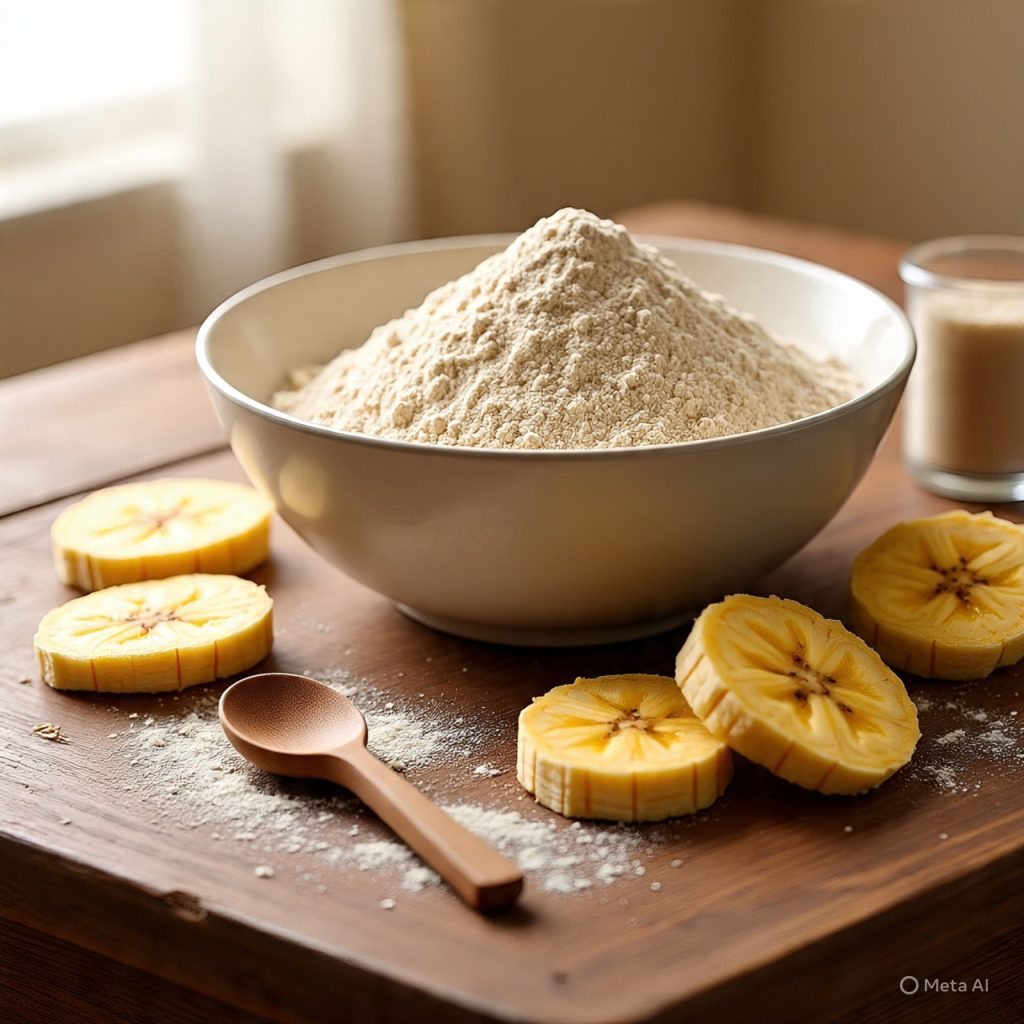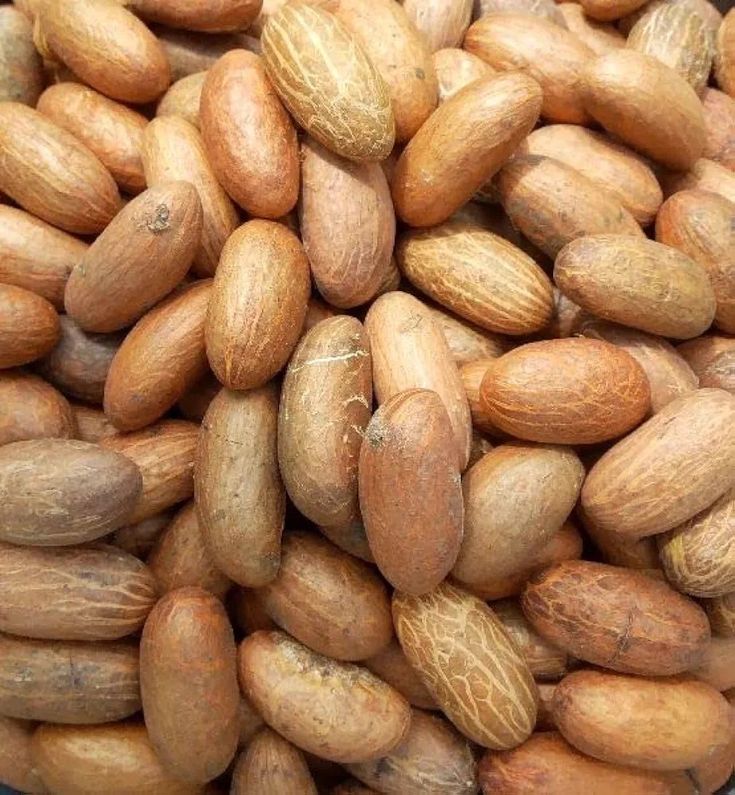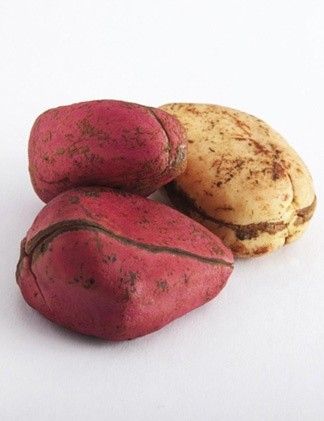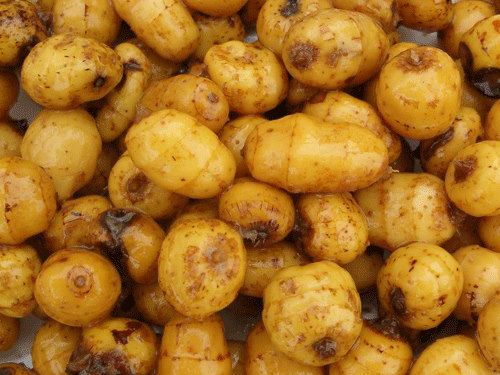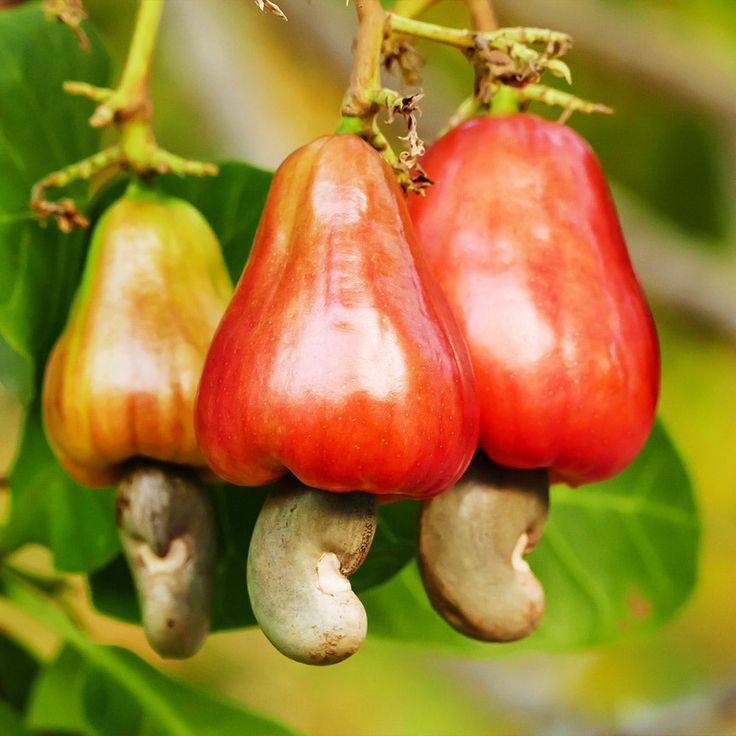What It Is
Plantain flour is a finely milled powder made from unripe green plantains that have been peeled, sliced, dried, and ground into a soft powder. It is a popular gluten-free flour substitute in many parts of the world, particularly in African, Caribbean, and health-conscious international markets. Unlike ripe plantains used for frying or cooking, green plantains are used to produce a more starchy and neutral-flavored flour suitable for both sweet and savory dishes.
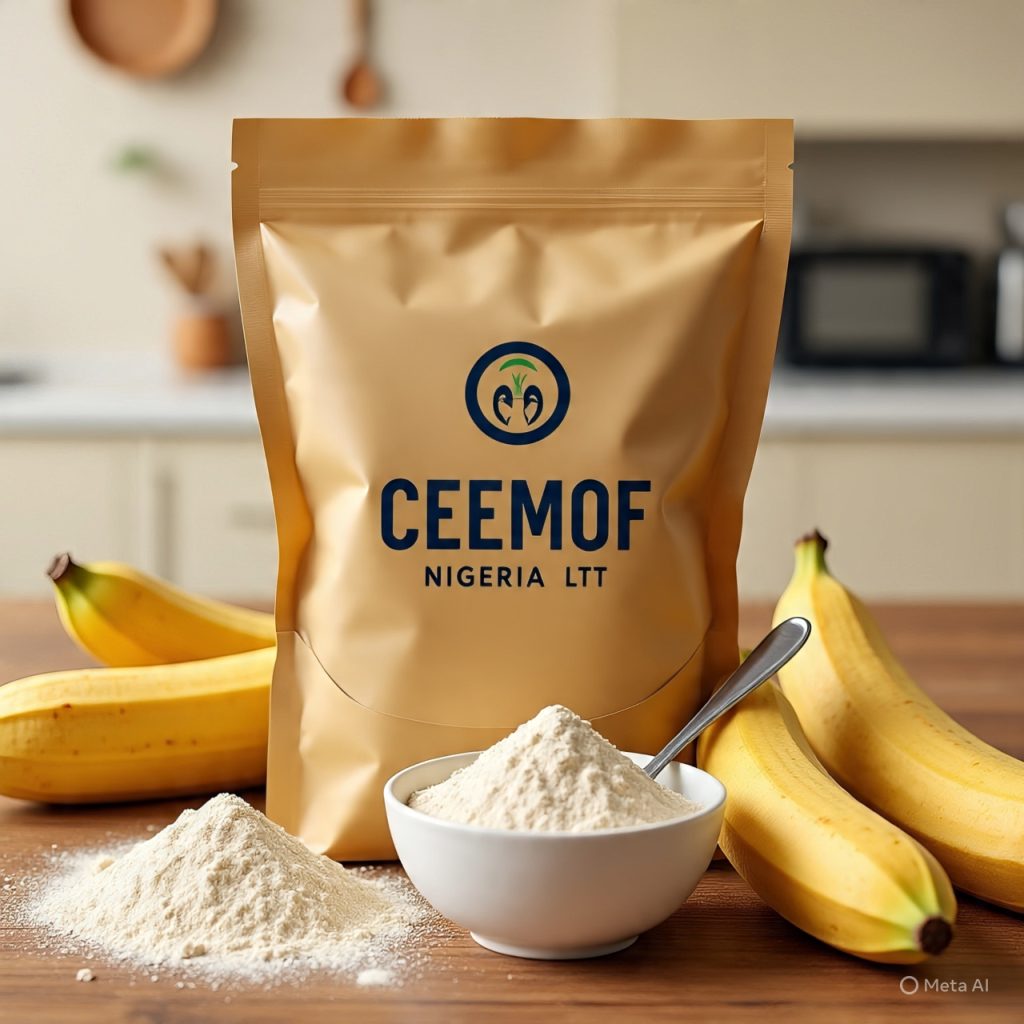
Nutritional & Health Value
-
Rich in Resistant Starch – Supports gut health and helps regulate blood sugar.
-
High in Dietary Fiber – Aids digestion and promotes satiety.
-
Vitamins & Minerals – Excellent source of potassium, iron, magnesium, and vitamin B6.
-
Low Glycemic Index – Ideal for diabetics and weight management.
-
Gluten-Free – Perfect for individuals with celiac disease or gluten sensitivity.
Export Importance
Plantain flour has become an in-demand export commodity due to rising global interest in:
-
Gluten-free diets
-
African and Caribbean cuisines
-
Plant-based and natural foods
It provides added value to plantains beyond local consumption, reducing post-harvest losses and supporting rural farmers.
Forms Available for Export
-
Raw Plantain Flour – Pure unripe plantain powder without additives.
-
Fortified Plantain Flour – Enriched with vitamins or blended with other flours like yam or cassava.
-
Instant Plantain Flour – Pre-cooked and ready-to-mix for quick meals.
Uses
-
Traditional Meals – Used to prepare “swallows” like amala plantain eaten with soups.
-
Baking – Substitute for wheat flour in bread, pancakes, muffins, and cookies.
-
Health Products – Ingredient in fitness and wellness meal plans.
-
Thickener – Used in soups, sauces, and baby foods as a natural thickening agent.
Packaging for Export
-
Retail Packs: 500g, 1kg, 2kg sealed food-grade pouches.
-
Bulk Packaging: 25kg, 50kg polypropylene bags with inner liners.
-
Custom Branding: Private label packaging available for foreign distributors.
-
Label Requirements: Nutritional facts, HS code, country of origin, manufacturing & expiry dates, batch number, storage instructions.
Export Specifications
-
Moisture Content: ≤ 10%
-
Texture: Fine, smooth powder free from lumps or foreign particles.
-
Color: Light cream to pale yellow (depending on processing).
-
Shelf Life: 12 – 18 months in a cool, dry environment.
-
Certifications: SON, NAFDAC, HACCP, ISO, Phytosanitary Certificate, Certificate of Origin.
HS Code
-
HS Code: 1106.30 – “Flour, meal and powder of products of Chapter 8 (fruit).”
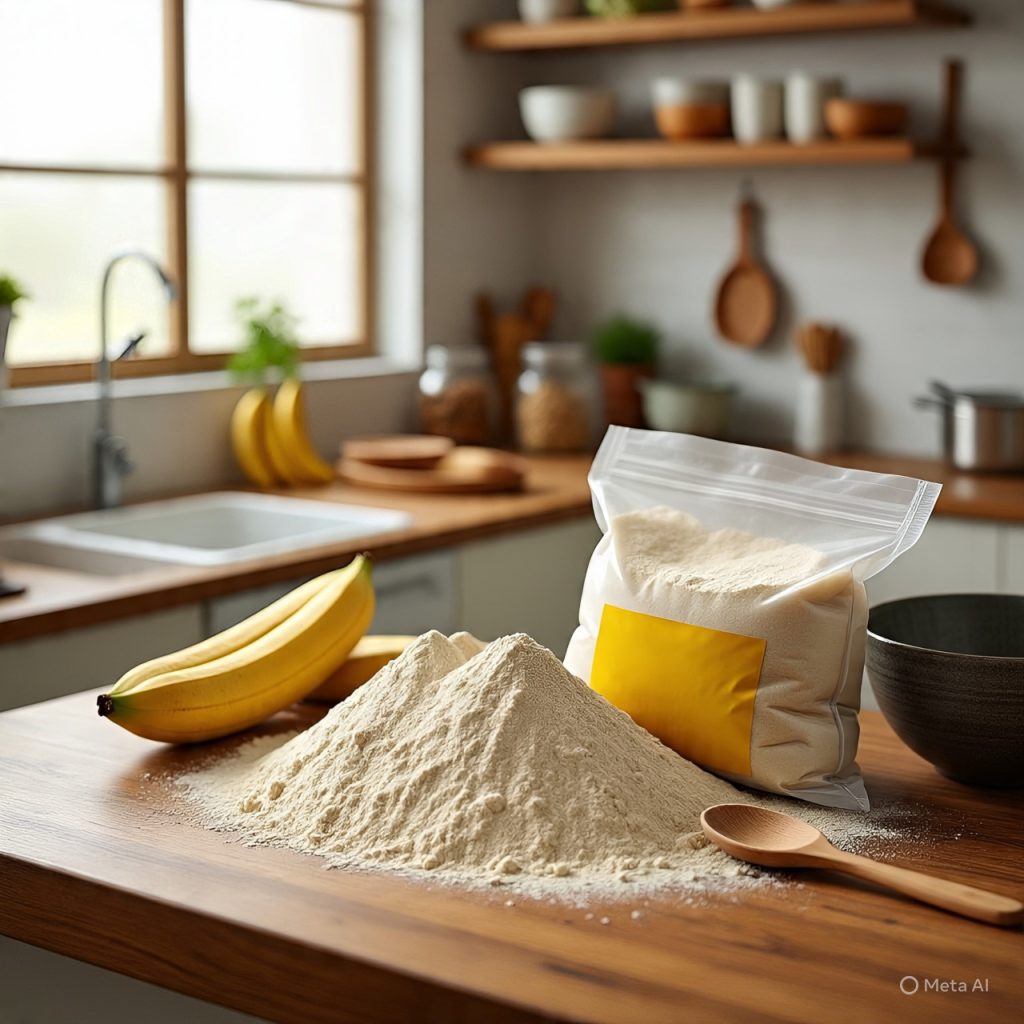
Top Export Destinations
-
United Kingdom – Large African and Caribbean diaspora, growing gluten-free demand.
-
United States & Canada – Expanding ethnic food market.
-
Europe & Middle East – Growing health-conscious populations and alternative flour markets.
-
Asia – Used in specialty diets and functional food industries.
Market Drivers
-
Health Awareness: Demand for gluten-free, diabetic-friendly foods.
-
Cultural Demand: Diaspora communities seek familiar foods.
-
E-commerce: Growth of ethnic food stores online.
-
Food Innovation: Used in energy bars, baby foods, and ready-to-eat mixes.
Plantain flour export is a high-potential agribusiness that meets both ethnic and mainstream global food trends. Its versatility, nutritional profile, and long shelf life make it a valuable export commodity for any agro-exporter.

